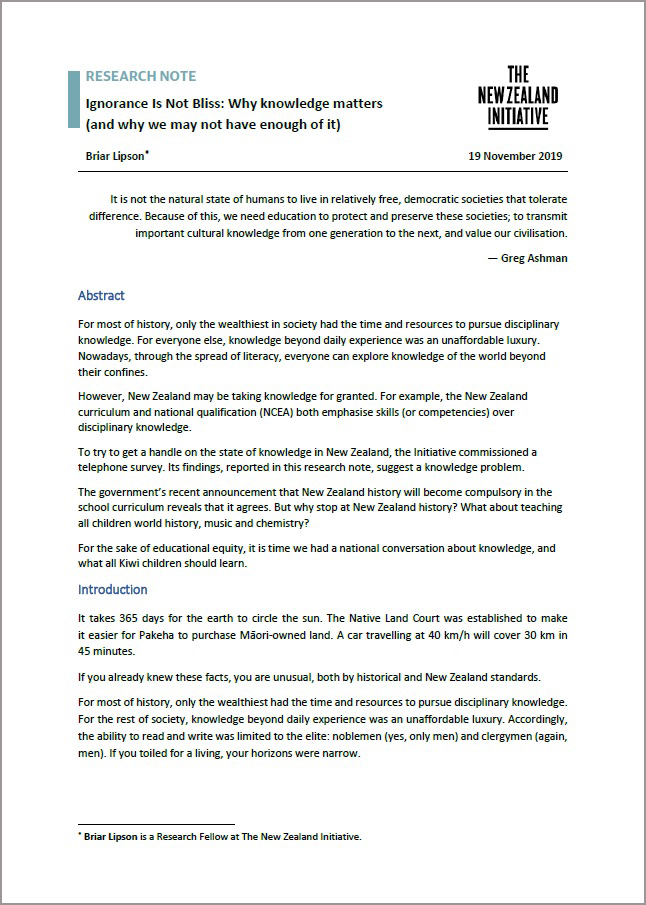For most of history, only the wealthiest in society had the time and resources to pursue disciplinary knowledge. For everyone else, knowledge beyond daily experience was an unaffordable luxury. Nowadays, through the spread of literacy, everyone can explore knowledge of the world beyond their confines.
However, New Zealand may be taking knowledge for granted. For example, the New Zealand curriculum and national qualification (NCEA) both emphasise skills (or competencies) over disciplinary knowledge.
To try to get a handle on the state of knowledge in New Zealand, the Initiative commissioned a telephone survey. Its findings, reported in this research note, suggest a knowledge problem.
The government’s recent announcement that New Zealand history will become compulsory in the school curriculum reveals that it agrees. But why stop at New Zealand history? What about teaching all children world history, music and chemistry?
For the sake of educational equity, it is time we had a national conversation about knowledge, and what all Kiwi children should learn.
Table: Knowledge polling results

Survey background
It is not a straightforward process to gain a handle on, let alone judge, the state of knowledge in any country. Elsewhere, longitudinal studies by organisations such as the Australian Academy of Science and the Pew Research Center in America have provided insights into changes in knowledge over time.
No equivalents exist in New Zealand, so the Initiative created a snapshot. Where possible, our survey was based on questions used elsewhere in the world to provide comparator data. Where equivalents did not exist, we devised questions of our own.
During May and June 2019, Curia Market Research conducted telephone surveys of a representative sample of 1,000 New Zealand residents aged 18 and over who were contactable on a landline or mobile phone. The full results of the survey, with breakdowns by gender, age, area type and deprivation decile, are available here.
We know there may be disagreement about the relevance of some of the survey questions. Is it really necessary to know the year the Treaty of Waitangi was signed? Why should we learn to name the seven continents, or how to calculate distance from time and speed?
We also know that education is about concepts and processes like problem-solving as well as facts.
A 13/13 score would not indicate someone has had a great education.
Even though we might debate the nature of these questions, we hope there is a consensus that to participate meaningfully in society, some basic knowledge of the world is required.





